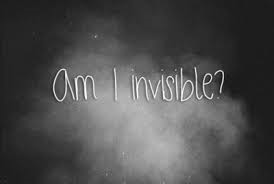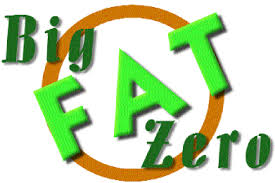“Did you know that books were invisible?”
That was the opening line I gave a slightly bemused group of friends when they kindly offered to let me give a ‘pretend’ talk about what to do after you’ve written a book.
OK- I’d better back track a little bit.
For a little while now I’ve been considering holding a few writing classes, and possibly taking on mentoring. There is one issue however-there are hundreds and hundreds of creative writing classes out there. I want to provide something a little bit different.
After chatting to fellow authors at the Tiverton Literary Festival in June, it transpired that what wasn’t so available was advice on what to do after you’d created your story. I have spent some time thinking about this.
There are so many authors in the world putting their life’s blood into their words. They pour themselves into their work, then perhaps they are lucky enough to find a publisher, or they decide to self publish their book, and then…nothing.
This brings me to my original point. Unless you are with one of the top six publishers who have contracts to get books into the mainstream bookshops and supermarkets, books are invisible. They only exist if people know about them- and when I say people, I don’t mean your family, friends, work colleagues, and the people they happen to know.
Marketing- that’s what writers have to do. Writing is fairly important as well of course- but if you write something in the hope of earning an income, and then don’t market it, then what’s the point?
I can’t say I enjoy the marketing side of my job- and I’m lucky enough to have a publisher that does some marketing for me- but if you don’t have a Facebook page for your books, and a Twitter account from which to shout about your literary wares, then there is a real danger of disappearing into the ether of the eBook world. You need a blog, you need constant presence, and you need to – every now and then- share just a little of the real you to engage your audience.
Sadly, there is no magic wand when it comes to selling books. People won’t know you’ve written a book unless you make them sit up and take notice of the fact.
OK- lecture over!
I’ll pop off now, because I need to think up exactly what my ‘after-writing’ course will contain…any ideas (polite ones only!) will be very welcome!
Thank you!!
Happy reading, writing and marketing,
Jenny x
Twitter- https://twitter.com/JennyKaneAuthor




Gilli Allan
Well said, Jenny. After all my years in this business (I won’t say precisely how many!)I still don’t know how to market myself. Or, should I say, SUCCESSFULLY market myself. gx
Jenny Kane
Thanks Gilli. I have never learnt to love marketing, but if I didn’t do it I’d never sell a thing. I was lucky enough to meet the lovely Lucy Felthouse early in my career. She is a marketing wizard, and has taught me a great deal. xx
Gilli Allan
Well said, Jenny. After all my years in this business (I won’t say precisely how many!)I still don’t know how to market myself. Or, should I say, SUCCESSFULLY market myself. gx
Jenny Kane
Thanks Gilli. I have never learnt to love marketing, but if I didn’t do it I’d never sell a thing. I was lucky enough to meet the lovely Lucy Felthouse early in my career. She is a marketing wizard, and has taught me a great deal. xx
Tom Williams
Hmmm. That’s all well and good as far as it goes, but it begs the odd question. I have a blog. It used to get about 750 page views a month, which suggested that some people found it interesting. But it didn’t sell a lot of books. Then I discovered Twitter. (@TomCW99 as you ask.) I tweet religiously and that must be doing something right, because I now get about 2,000 page views a month. That’s much less than, say, fellow Accent historical writer Carol McGrath, who can manage that in three days, but it still suggests that people read the blog and, unless I am somehow constantly attracting new people, many of them enjoy it enough to keep coming back. Sales, though, remain obstinately low. This is despite some people (and people I have never met, bribed or buttered up online) saying very nice things about the books.
Part of the problem, I think, is targeting. I suspect that my books (which involve quite a lot of battle and bloodshed) tend to appeal more to men while I can’t help but notice that the people I meet on Twitter or the blog are more likely to be of the feminine persuasion. In fact, many women who try the books do like them, but we all have our prejudices and our comfort zones and I know that I will, for example, shy away from Regency Romance, so I can hardly complain that women *ought* to read my books. What I really need is to reach people who are interested in mid-Victorian colonial history or the Napoleonic wars and, though there are groups of such people online, becoming a trusted part of such a group takes a very long time and, even then, you are hardly likely to be the only person with a book to sell. Indeed, though I think my James Burke has qualities that make him, in some respects, more interesting than Richard Sharpe, I’m hardly going to suggest that you should abandon Bernard Cornwell to read Tom Williams. Cornwell is well-established and provides an excellent and *branded* product. Obviously people are going to buy his books before they buy those of an unknown author.
I used to work in advertising and people always used to quote that old line about half of all advertising being wasted but no one knowing which half. Much the same, I suspect, is true of book promotion. Many writers seem now to spend as much time blogging, tweeting and doing personal appearances as they do writing. Many (and I’ve asked around) hate it with a passion. Others love it. (I quite enjoy my blog actually: come and have a look – http://thewhiterajah.blogspot.co.uk/) But all will tell you that it takes time and energy that they could spend writing. So, Jenny, I guess what I want isn’t a course that tells me how to attract more people to my blog, or how to write a telling tweet. I need a course that tells me how to reach exactly those people with an interest in the subjects I write about, who have exhausted Bernard Cornwell’s output and are now about to spend their money on an alternative. Tell me that and I’m yours for life.
Jenny Kane
Lol- Tom, you are a marketing genius- look at how much self promotion you just did here xxx
Tom Williams
Hmmm. That’s all well and good as far as it goes, but it begs the odd question. I have a blog. It used to get about 750 page views a month, which suggested that some people found it interesting. But it didn’t sell a lot of books. Then I discovered Twitter. (@TomCW99 as you ask.) I tweet religiously and that must be doing something right, because I now get about 2,000 page views a month. That’s much less than, say, fellow Accent historical writer Carol McGrath, who can manage that in three days, but it still suggests that people read the blog and, unless I am somehow constantly attracting new people, many of them enjoy it enough to keep coming back. Sales, though, remain obstinately low. This is despite some people (and people I have never met, bribed or buttered up online) saying very nice things about the books.
Part of the problem, I think, is targeting. I suspect that my books (which involve quite a lot of battle and bloodshed) tend to appeal more to men while I can’t help but notice that the people I meet on Twitter or the blog are more likely to be of the feminine persuasion. In fact, many women who try the books do like them, but we all have our prejudices and our comfort zones and I know that I will, for example, shy away from Regency Romance, so I can hardly complain that women *ought* to read my books. What I really need is to reach people who are interested in mid-Victorian colonial history or the Napoleonic wars and, though there are groups of such people online, becoming a trusted part of such a group takes a very long time and, even then, you are hardly likely to be the only person with a book to sell. Indeed, though I think my James Burke has qualities that make him, in some respects, more interesting than Richard Sharpe, I’m hardly going to suggest that you should abandon Bernard Cornwell to read Tom Williams. Cornwell is well-established and provides an excellent and *branded* product. Obviously people are going to buy his books before they buy those of an unknown author.
I used to work in advertising and people always used to quote that old line about half of all advertising being wasted but no one knowing which half. Much the same, I suspect, is true of book promotion. Many writers seem now to spend as much time blogging, tweeting and doing personal appearances as they do writing. Many (and I’ve asked around) hate it with a passion. Others love it. (I quite enjoy my blog actually: come and have a look – http://thewhiterajah.blogspot.co.uk/) But all will tell you that it takes time and energy that they could spend writing. So, Jenny, I guess what I want isn’t a course that tells me how to attract more people to my blog, or how to write a telling tweet. I need a course that tells me how to reach exactly those people with an interest in the subjects I write about, who have exhausted Bernard Cornwell’s output and are now about to spend their money on an alternative. Tell me that and I’m yours for life.
Jenny Kane
Lol- Tom, you are a marketing genius- look at how much self promotion you just did here xxx
Jane Jackson
A thought-provoking post, Jenny, as is Tom’s reply. (Gilli, I do SO sympathise.) I think your ‘What you have to do once your book is published’ course should attract a lot of interest. It will also terrify a lot of new authors who have this naive idea that authors write the books then someone else does all the publicity and marketing. I wish!
Jane Jackson
A thought-provoking post, Jenny, as is Tom’s reply. (Gilli, I do SO sympathise.) I think your ‘What you have to do once your book is published’ course should attract a lot of interest. It will also terrify a lot of new authors who have this naive idea that authors write the books then someone else does all the publicity and marketing. I wish!
Georgina Troy
Interesting post and so true! I find the marketing side of writing very difficult.
Georgina Troy
Interesting post and so true! I find the marketing side of writing very difficult.